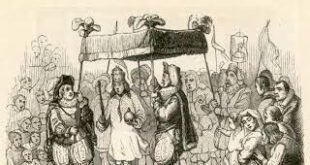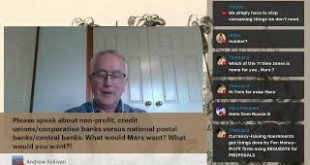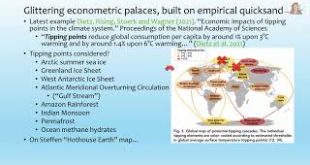From the Climate and COVID and Climate Correlations, the New Economics (2021) of Professor Steve Keen is the topic of this weekly series. Minsky software walkthroughs are common, so come by, we want to hear what you have to say. We are always looking for new and novel ways to look at a complex subject or to the issues that matter to us most. This video is about all of this and more.
Read More »Another LIVE event with Professor Steve Keen — Join us for a discussion
From the Climate and COVID and Climate Correlations, the New Economics (2021) of Professor Steve Keen is the topic of this weekly series. Minsky software walkthroughs are common, so come by, we want to hear what you have to say. We are always looking for new and novel ways to look at a complex subject or to the issues that matter to us most. This video is about all of this and more.
Read More »Another LIVE event with Professor Steve Keen — Join us for a discussion
From the Climate and COVID and Climate Correlations, the New Economics (2021) of Professor Steve Keen is the topic of this weekly series. Minsky software walkthroughs are common, so come by, we want to hear what you have to say. We are always looking for new and novel ways to look at a complex subject or to the issues that matter to us most. This video is about all of this and more.
Read More »Another planksip LIVE event with Professor Steve Keen — Join us for a discussion
From the Climate and COVID and Climate Correlations, the New Economics (2021) of Professor Steve Keen is the topic of this weekly series. Minsky software walkthroughs are common, so come by, we want to hear what you have to say. We are always looking for new and novel ways to look at a complex subject or to the issues that matter to us most. This video is about all of this and more.
Read More »From Economic Fantasy to Ecological Reality on Climate Change
This was an invited talk to the Oxford Department of International Development "Climate Change and the Challenges of Development Lecture Series", on my criticisms of the application of neoclassical economics to climate change. I focus on the new paper by Dietz et al. that allegedly calculates the economic costs of tipping points: Dietz, S., J. Rising, T. Stoerk and G. Wagner (2021). "Economic impacts of tipping points in the climate system." Proceedings of the National...
Read More »Book Launch for The New Economics: A Manifesto. Talk to Economic Society of Australia
This is a high-speed outline of the key points in my new book that challenge mainstream Neoclassical economic thinking. The topics covered are endogenous money ("Bank Originated Money and Debt") versus the empirically false mainstream model of Loanable Funds; the role of energy in production, and how the mainstream Cobb Douglas Production Function understates the role of energy in production by at least one order of magnitude; and how mainstream climate change economics has...
Read More »Of surpluses and deficits: discussion with Jussi Ora from Positive Money Sweden
This is a short (for me!) video discussing why one entity's surplus is another's deficit in a monetary economy, and why governments running a surplus are making the economy weaker rather than stronger.
Read More »Wise Response NewZealand Seminar on Biophysical Limits To Growth
This was an excellent seminar organised by Wise Response New Zealand, a coalition of academics, engineers, lawyers, artists, sportspeople etc who are calling on New Zealand’s Parliament to comprehensively assess imminent risks to New Zealand and to draw up plans to deal with them. The seminar webpage is http://wiseresponse.org.nz/2021/08/31/seminar-are-there-biophysical-limits-to-growth/ The speakers were (in order): Associate Professor Simon Michaux (Geology) Professor Steve Keen...
Read More »Money From Nothing and your MMT
Modelling how the Treasury of a money-issuing government can kick start an economy from zero by running a deficit--spending more than it taxes--selling bonds to the banks, which the banks buy using the reserves created, and paying interest on the bonds, while borrowing from the central bank to cover the interest payments on the bonds--and these interest payments create positive equity for the banking sector.
Read More »Redirecting to Patreon
If you’re looking for my latest work, please click here to go to my Patreon site. This site is maintained for historical reasons only.
Read More » Steve Keen’s Debt Watch
Steve Keen’s Debt Watch









